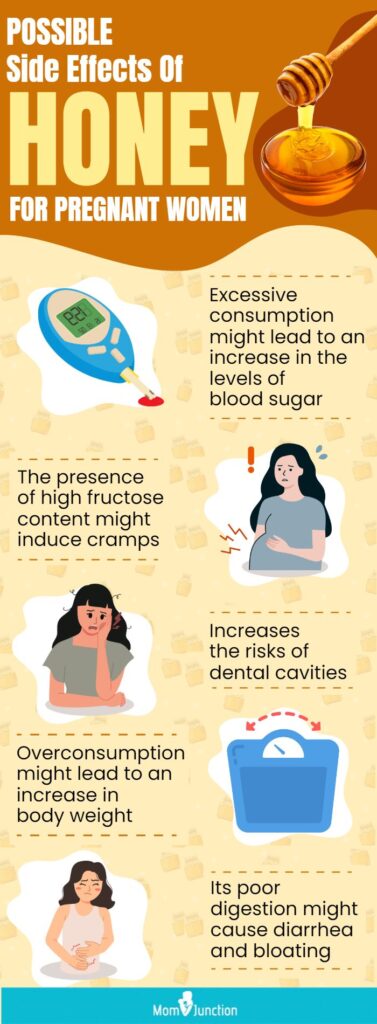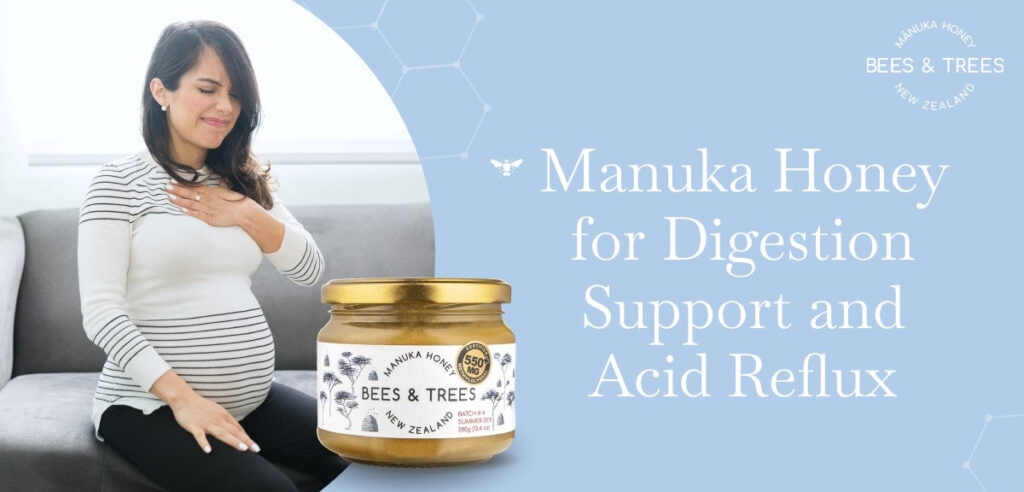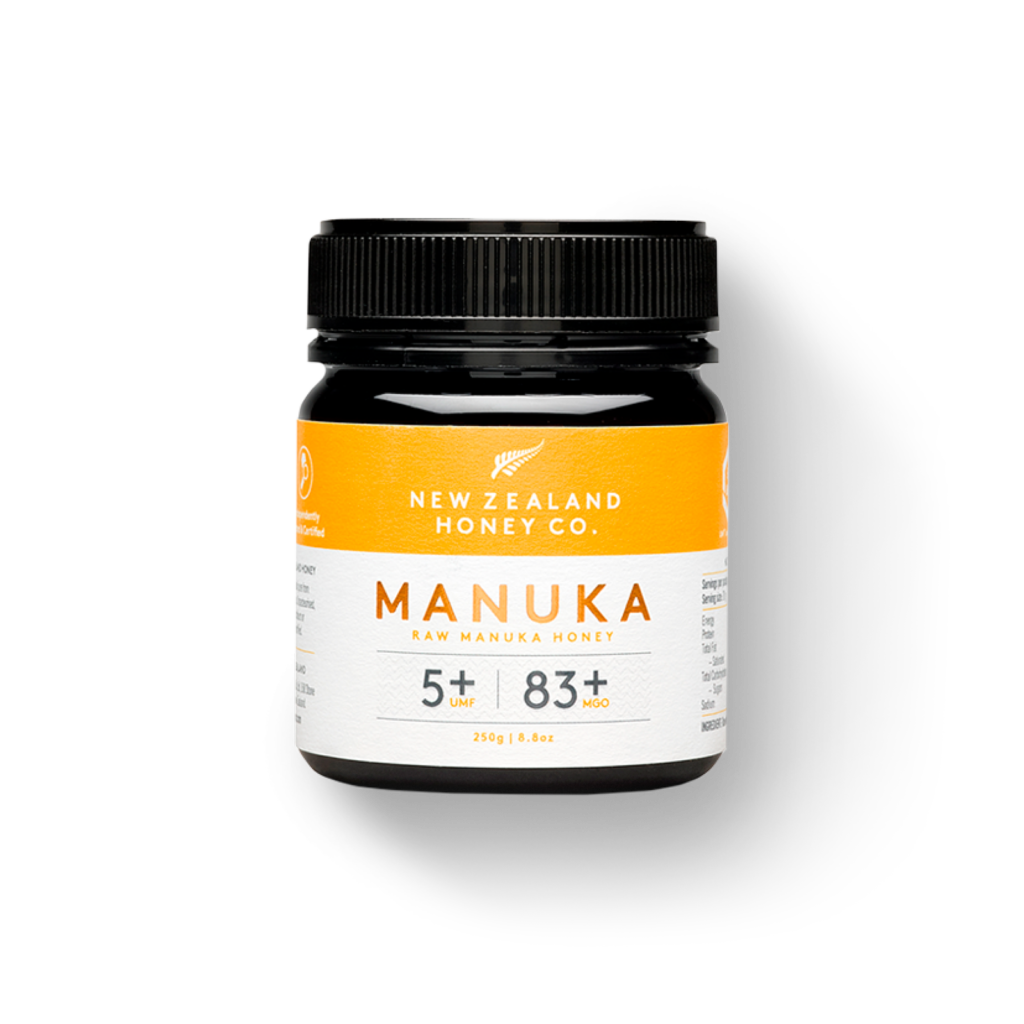
Manuka honey has gained popularity for its potential health benefits, but what about pregnant women? Many expectant mothers wonder if it is safe to consume manuka honey during pregnancy. This article explores the safety of manuka honey in pregnancy and provides insights into its potential benefits and risks. Whether you’re an expecting mother or simply curious about the topic, read on to discover the answers you’re looking for.

Potential Benefits of Manuka Honey during Pregnancy
Rich in nutrients
Manuka honey is not only delicious, but it is also packed with nutrients that can be beneficial during pregnancy. It contains vitamins, minerals, and antioxidants that can support the overall health and well-being of both you and your baby. Nutrients like vitamin C, protein, calcium, and iron can contribute to a healthy pregnancy and aid in the development of your baby’s bones, muscles, and immune system.
Boosts immune system
During pregnancy, it’s crucial to maintain a strong immune system to protect both you and your baby from potentially harmful bacteria and viruses. Manuka honey is known for its antibacterial and antiviral properties, which can help boost your immune system and reduce the risk of infections. By adding a spoonful of this golden elixir to your diet, you can give your immune system the extra support it needs to stay healthy throughout your pregnancy.
Soothes sore throat and cough
Pregnancy can sometimes bring along uncomfortable symptoms such as sore throat and cough. Thankfully, Manuka honey’s natural healing properties can provide relief from these irritating ailments. Its thick consistency helps soothe the throat and coats it with a protective layer, easing the pain and irritation caused by a persistent cough or sore throat. Additionally, the antibacterial properties of Manuka honey can help fight off any underlying infections that may be causing these symptoms.
Safety of Manuka Honey during Pregnancy
Source of manuka honey
When considering the safety of Manuka honey during pregnancy, it’s important to ensure you are sourcing it from a reputable brand or supplier. Look for Manuka honey that is sourced from trusted beekeepers who practice ethical beekeeping and adhere to strict quality control standards. This way, you can be confident that the honey you are consuming is of high quality and free from any potential contaminants.
Raw vs. pasteurized manuka honey
There are two types of Manuka honey available: raw and pasteurized. While raw honey is often considered to have more health benefits, it may contain traces of bacteria or pollen that could be harmful to pregnant women. Therefore, it is generally recommended to opt for pasteurized Manuka honey during pregnancy. Pasteurization is a process that involves heating the honey to kill any potential harmful bacteria without compromising its nutritional value.
Quality and purity
When it comes to Manuka honey, quality and purity are of utmost importance. Look for honey that has a Unique Manuka Factor (UMF) rating, which signifies that it contains the unique antibacterial properties associated with Manuka honey. The higher the UMF rating, the more potent the honey. Reliable brands will usually have their honey independently tested and certified, ensuring its quality and purity.
Potential contamination
While Manuka honey itself is considered safe to consume during pregnancy, there is a potential risk of contamination if it comes into contact with certain bacteria, such as Clostridium botulinum, which can cause botulism. to minimize this risk, it’s crucial to store Manuka honey properly in a cool, dry place and avoid using contaminated utensils when scooping it out. Pregnant women and individuals with compromised immune systems should also avoid consuming raw or unpasteurized honey to reduce the risk of bacterial infections.
Allergies and sensitivities
Although rare, some individuals may have allergies or sensitivities to honey, including Manuka honey. If you have a known allergy to honey or experience any adverse reactions after consuming it, it is best to avoid Manuka honey during pregnancy. Additionally, if you have gestational diabetes or other underlying medical conditions, consult with your healthcare provider before incorporating Manuka honey into your diet.

Considerations for Use
Consulting with healthcare provider
As with any dietary changes or supplements during pregnancy, it is important to consult with your healthcare provider before adding Manuka honey to your diet. They can provide personalized advice based on your individual health needs and help you determine if Manuka honey is safe for you and your baby. They can also guide you regarding the appropriate dosage and frequency of consumption.
Recommended dosage
The recommended dosage of Manuka honey during pregnancy varies depending on the individual and their specific health condition. It is generally advisable to start with a small amount, such as a teaspoon per day, and gradually increase it if tolerated well. However, it is essential to follow your healthcare provider’s recommendations to ensure you are consuming a safe amount of Manuka honey that aligns with your pregnancy needs.
Possible side effects and risks
While Manuka honey is generally considered safe for consumption during pregnancy, there are a few possible side effects and risks to be aware of. Some individuals may experience mild gastrointestinal discomfort, such as bloating or diarrhea, if they consume excessive amounts of honey. Additionally, due to its high sugar content, it is important to moderate your overall sugar intake when incorporating Manuka honey into your diet.

Alternatives to Manuka Honey during Pregnancy
Other types of honey
If you are unable to consume Manuka honey or have concerns about its safety, there are several other types of honey that can offer similar benefits. Raw, organic honey from trusted sources can provide nutritional value and potential immune-boosting properties. However, it’s essential to ensure the honey is pasteurized to minimize the risk of bacterial contamination.
Natural remedies
If honey is not an option for you during pregnancy, there are alternative natural remedies that can help soothe various pregnancy symptoms. For sore throat and cough, you can try drinking warm herbal teas with lemon and ginger or using saline nasal drops to alleviate congestion. It’s always wise to consult with your healthcare provider before trying any new remedies to ensure they are safe and suitable for your pregnancy.

Conclusion
In conclusion, Manuka honey can be a beneficial addition to your diet during pregnancy, thanks to its rich nutrient profile and potential health benefits. However, it is essential to prioritize safety by ensuring the honey is sourced from reputable suppliers, opting for pasteurized varieties, and checking for quality certifications. Consulting with your healthcare provider, understanding recommended dosages, and being aware of possible side effects and risks are crucial considerations. If Manuka honey is not an option, there are various other types of honey or natural remedies that can offer similar benefits. Remember to always prioritize your and your baby’s health by making informed decisions and seeking professional advice.
